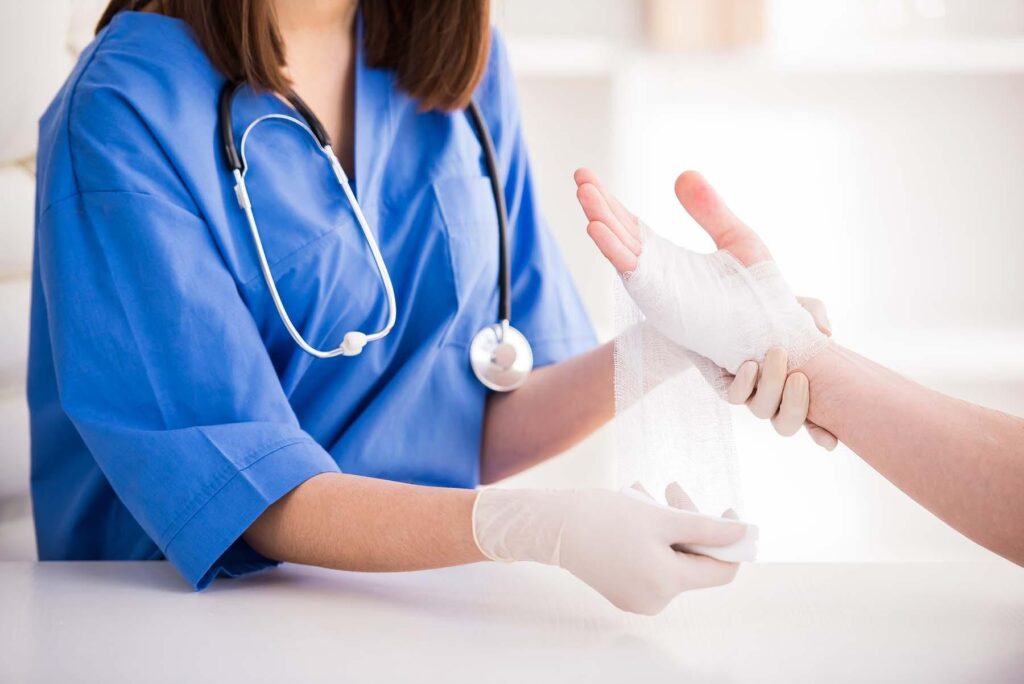I cut myself; do I need professional wound care?
It depends. Most minor cuts and lacerations don’t need professional wound care. Often, washing the wound with soap and warm water, applying an antibiotic ointment, and covering it with a bandage is enough to prevent infection and other more serious issues.
If your wound is larger than half an inch and it continues to bleed, even after you apply pressure, contact Collin Medical and Wellness Group.
What types of injuries does wound care treat?
The Collin Medical and Wellness Group team uses wound care to treat various injuries, including:
- Puncture wounds
- Cuts and lacerations
- Burns
- Scrapes and abrasions
- Diabetic ulcers
- Arterial ulcers
- Insect bites and stings
- Blisters
- Skin tears
If you have a chronic medical condition that increases your risk of poor circulation, the team might recommend routine wound care checkups to reduce the risk of gangrene and amputation.
What happens during a wound care visit?
Your Collin Medical and Wellness Group provider reviews your medical records, asks about your symptoms, and completes a physical exam. They look at your wound (or wounds), checking for redness, inflammation, and discharge.
Then, your provider gently presses your skin with different tools to check for numbness and takes a skin sample (biopsy) to test for infection. They also order diagnostic imaging, such as an MRI or ultrasound, to see how far the wound extends beneath your skin.
How are slow-healing wounds treated?
The Collin Medical and Wellness Group team treats slow-healing wounds using a conservative and integrative approach. They might recommend:
- Oral antibiotics
- IV therapy
- Cleaning the wound
- Draining fluid or pus from the wound
- Applying special bandages or ointments
- Removing dead or infected tissue (debridement)
- Prescribing a wheelchair or crutches to take pressure off the wound
- Frequent dressing changes
If your infection continues, even after these treatments, your provider might recommend surgery, like an amputation.
Can I prevent cuts, wounds, and burns?
There’s no way to prevent cuts, burns, and open wounds entirely, but you can lessen your risk.
The Collin Medical and Wellness Group team recommends wearing the appropriate safety gear at work or when using tools, focusing on one task at a time, and always wearing shoes and socks. These minor changes can make all the difference and keep your skin injury-free.
Call Collin Medical and Wellness Group today to explore the benefits of wound care, or book your visit online.







